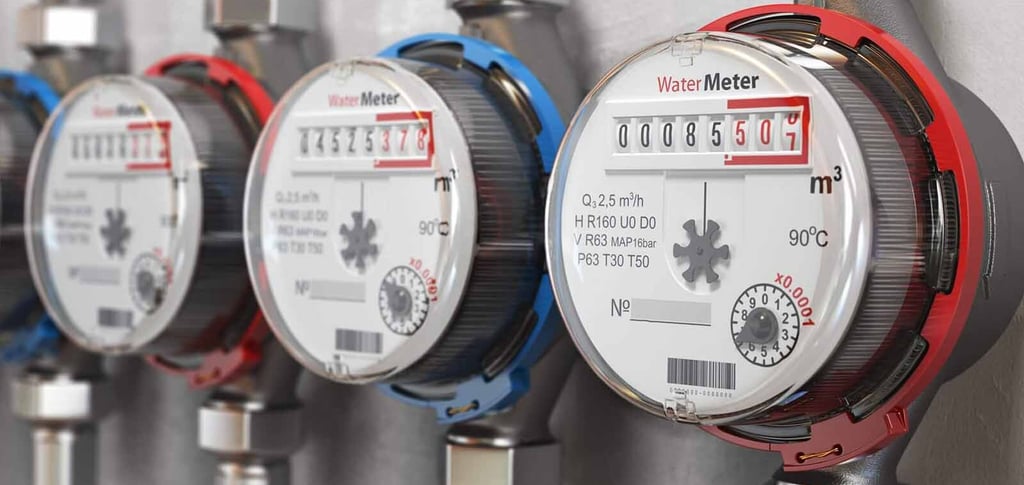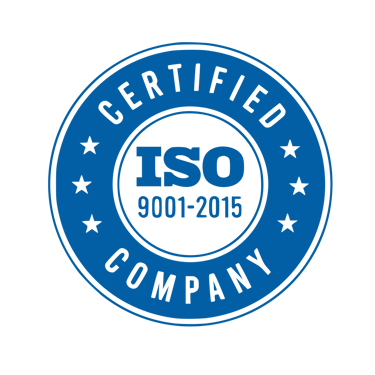How To Start A Lucrative Water Meters Distribution Business In Ghana
The Complete Guide To Building A Profitable Water Meter Supply Chain in West Africa
HOW TO GUIDE
3 min read


Water management is becoming an increasingly urgent issue across Africa, and Ghana is no exception. With growing urbanization, expanding infrastructure, and government-led utility reforms, there is a rising demand for accurate and efficient water usage monitoring.
Water meters — both mechanical and smart — have emerged as vital tools in addressing water distribution challenges, especially in urban and peri-urban areas.
This comprehensive guide provides step-by-step insights into launching a water meter distribution business in Ghana, exploring everything from licensing and market research to sourcing, partnerships, and sales strategies.
What Are Water Meters?
Water meters are devices used to measure the volume of water used by residential, commercial, and industrial buildings. They are essential for:
Accurate billing
Leak detection
Water conservation
Utility monitoring and control
Types of Water Meters:
Mechanical (Volumetric or Turbine)
Smart (Digital or AMR-enabled)
Prepaid Meters
Why Start a Water Meters Distribution Business in Ghana?
📊 Growing investments in water infrastructure
❄️ Rising demand for prepaid and smart meters
🚀 Utility reforms focused on accountability and efficiency
🏠 Expanding real estate and construction sectors
🌿 Government push for universal water access
Market Opportunities in Ghana
Key Demand Drivers:
Ghana Water Company Limited (GWCL) initiatives
Real estate developers and contractors
Municipal and local government projects
Private sector borehole operators and estates
Demand Hotspots:
Accra (Greater Accra Region)
Kumasi (Ashanti Region)
Takoradi (Western Region)
Tamale (Northern Region)
Potential Business Models
Wholesale Distribution to Contractors and Utility Providers
Retail Sales to Real Estate Projects & Plumbers
Exclusive Import-Distribution Partnerships with Manufacturers
Value-Added Services (Installation, Maintenance, Calibration)
Challenges to Anticipate
⚠️ High import duties on technical equipment
⚠️ Inconsistent utility procurement cycles
⚠️ Difficulty in accessing utility tenders
⚠️ Technical training and support for installers
Step-by-Step Guide to Starting the Business
1. Conduct Market Research
Study demand from water utility providers, construction firms, and borehole service companies.
Visit trade expos and public utility procurement fairs.
Speak with real estate developers and facility managers.
2. Register Your Business
Register with the Registrar General’s Department (RGD) in Ghana.
Obtain a TIN (Tax Identification Number).
Get a Value Added Tax (VAT) Certificate from the Ghana Revenue Authority (GRA).
Register with the Public Procurement Authority (PPA) for public tenders.
3. Choose a Niche & Meter Type
Residential vs. commercial meters
Prepaid vs. postpaid
Smart meters with AMR integration
Bulk meters for industrial usage
4. Partner with Manufacturers or Suppliers
Source from manufacturers in India, China, Europe
Consider brands with WASDA or ISO certification
Negotiate exclusivity or authorized distributorship in Ghana
5. Setup Warehouse and Logistics
Lease a small warehouse in Accra or Tema for proximity to port and central supply chain
Partner with local transporters for last-mile delivery
Secure proper packaging, shelving, and storage for meter components
6. Build Sales and Distribution Channels
Create relationships with plumbing associations, utility contractors, developers
Partner with civil engineering firms working on water projects
Setup online presence (website + B2B catalog)
7. Marketing & Outreach
Print flyers, banners, and technical spec sheets
Attend water, sanitation, and housing expos (e.g., Ghana Water Forum)
Host product demos for municipal engineers
Run LinkedIn ads targeting procurement heads and developers
8. After-Sales Support & Maintenance
Train local plumbers and technicians
Offer optional annual maintenance contracts (AMCs)
Ensure access to spare parts and technical documentation
Startup Costs & Profitability
Estimated Startup Capital:
Business Registration & Licenses – GHS 2,500 – GHS 5,000
Initial Stock Procurement – GHS 100,000 – GHS 300,000
Warehouse Lease & Setup – GHS 20,000 – GHS 50,000
Logistics & Branding – GHS 15,000
Marketing & Launch – GHS 10,000 – GHS 25,000
Total: GHS 150,000 – GHS 400,000 (approx. $10,000 – $30,000)
Expected Margins:
Wholesale (B2B) – 20% – 35%
Retail (B2C) – 40% – 60%
Higher margins on prepaid and smart meters
Tips for Success
Build strong relationships with procurement officers in utilities and government.
Offer metering solutions tailored to different water pressures and pipe sizes.
Keep demo units for testing and on-site inspection.
Provide digital catalogs with technical specs.
Stay up-to-date with water regulations and standards in Ghana.
Frequently Asked Questions (FAQs)
Q1: Is approval from GWCL required to sell meters?
No, but working closely with approved contractors and utilities ensures credibility.
Q2: Can I sell directly to households?
Yes, especially for private borehole installations and estates.
Q3: Where can I import water meters from?
China, India, Turkey, and Europe are common sources. Look for ISO and WRAS-certified manufacturers.
Q4: Do I need a technical background to start?
Not necessarily, but having a technical partner or staff with plumbing or engineering experience helps.
Q5: Are smart meters in demand?
Yes. Demand for smart prepaid meters is growing among municipalities and private estates.
Conclusion
As Ghana modernizes its water distribution infrastructure, the need for accurate and durable metering solutions is rising. Starting a water meter distribution business offers an opportunity to be part of this essential transformation — while also building a scalable, long-term business.
By combining quality sourcing, strong sales networks, and customer education, entrepreneurs can tap into a niche yet fast-growing sector that supports one of Ghana’s most important resources: water.

